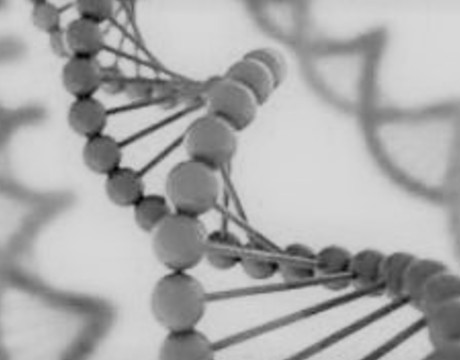For more than two decades, the UCD Conway Institute for Biomolecular and Biomedical Research has been a hub of frontier research and pioneering technological developments. Home to many of Ireland’s most outstanding researchers in the biomedical sciences, the Institute’s community of over 500 Fellows, research staff and students has made significant strides in exploring the mechanisms of health and disease, resulting in preventative strategies as well as novel diagnostic and therapeutic solutions.
As Ireland's leading biomedical institute, The Conway is driving transformative advancements in health and wellbeing through the integration of artificial intelligence (AI) and computational science. The institute’s mission centres on the interdisciplinary exploration of health and disease mechanisms, focusing on the development of preventative strategies, novel diagnostics, and therapeutic solutions. This focus is systematically supported by the early institutional adoption of predictive modelling and pioneering 'omics' research, generating measurable impact and breakthroughs within clinical settings.
The capacity for high-impact AI research within the Institute is rooted in a long-standing institutional maturity in computational methods and data handling. UCD Conway has been recognised as home to world leaders in predictive modelling and bioclinical informatics.
The integration of AI is not an auxiliary function but a core element of the Institute's research strategy, aligned across its three cross-cutting themes: Personalised and Translational Medicine, One Health, and Discovery Research. This structural alignment enables complex, data-rich projects to move rapidly from basic discovery to clinical application. Critical to this process is the enabling infrastructure, which generate complex multidimensional omics datasets, provide the computational power and collaborative platform necessary to maximise translational velocity.
UCD Conway research
UCD Conway Institute is home to many of Ireland’s most outstanding performers in the biomedical sciences. This exceptional interdisciplinary research environment with key operational and infrastructural supports continues to enable the establishment of large-scale initiatives and programmes underpinned by excellence in research and innovation.
The capacity for high-impact AI research within the Institute is rooted in a long-standing institutional maturity in computational methods and data handling. UCD has been recognised as home to world leaders in predictive modelling and bioclinical informatics. This computational legacy is perhaps best exemplified by the work of Emeritus Professor Des Higgins, who originated (opens in a new window)Clustal, a foundational technology that profoundly changed the approach to genome sequencing and the management of biological big data. Clustal has become a global standard, demonstrating the Institute's historical capability to develop and scale user-friendly, high-impact computational tools.
This sustained involvement with foundational computational tools and established expertise in complex systems modelling is a prerequisite for scaling current AI research. It allows the Institute to focus its resources on the translational application of AI and machine learning (ML) models—such as 'omics' research and digital twin applications—rather than needing to develop basic algorithmic theory from scratch. This deep reservoir of experience ensures that AI solutions are built upon a robust methodological base, including expertise in network analysis and machine learning, derived from collaborations with computer scientists and physicists.
We partner with academic, clinical, industry and civic society to nurture potential future technological and intellectual success in an environment firmly embedded within a positive culture where engaged research can flourish.
Through valuable programmes and resources, UCD Conway Institute and its Fellows have developed a research training and skills pipeline that is contributing to advances in academia, industry, technology, education and other sectors, both nationally and internationally.
The role of Bioinformatics
The development of bioinformatics - the science of using computers to manage and analyse genetic information, has played a significant role in UCD Conway Institute’s contributions to research and society. Professor Emeritus Des Higgins, the primary creator of Clustal, spent the last 20 years of his career as Professor of Bioinformatics in UCD School of Medicine, with research activities at UCD Conway Institute and Systems Biology Ireland.
The Clustal package takes sequences of genetic information (DNA or proteins) and quickly compares them to see what they have in common or how they differ. This ground-breaking technology profoundly changed the way scientists approach genome sequencing and management of big data. Clustal has since become a global standard, with Higgins and his colleagues at UCD Conway Institute and beyond developing more powerful versions of the free user-friendly programme over time.
Accessible via large servers like those at the European Bioinformatics Institute and the Swiss Institute of Bioinformatics, the package is now used hundreds of times every day in labs across the world to address urgent questions. It is routinely used to compare the DNA of different strains of viruses to track outbreaks of infectious diseases, essential for informing policies aimed at minimising the impact of outbreaks; it has been used to understand drug resistance in cancer patients and to deepen our understanding of the evolution of trees; using this software, companies can make genetic comparisons vastly more efficient, and it has been cited in over 20,000 patent documents.
Professor Higgins' research at UCD Conway Institute focused on developing multiple sequence alignment and multivariate analysis of genomics related data, with highlights including his finding that very large multiple alignments of many sequences may be accelerated by use of simpler guide trees (Proc Natl Acad Sci USA 2014). He has brought his expertise and experience to important programmes like Breast-Predict and was instrumental to the development of Digital Twins with Systems Biology Ireland. The impact of this research has been key to the development of many initiatives at UCD Conway Institute over the years, from the Core Technologies Programme, to important progress made in the fields of Precision Medicine and Artificial Intelligence.
Next Generation Sequencing Technologies
Recognised as the most comprehensive and advanced analysis platform for the life sciences and biomedical research in Ireland, the UCD Conway Core technologies programme is a leader in providing technology solutions in the areas of genomics, proteomics (see video above), metabolomics, imaging, flow cytometry, and research pathology.
The core technology programme provides access to high-end equipment and invaluable technical expertise across these experimental platforms as well as bioinformatic supports. Access to these core technologies ensures rigour in experimental processes and drives scientific advances, while delivering exceptional research training opportunities. The facility has provided comprehensive solutions to challenging research questions for clients across Higher Education Institutions, as well as academic and industry collaborators internationally.
Led by Professor Geraldine Butler, UCD School of Biomolecular and Biomedical Science, UCD Conway Institute, the UCD Conway Genomics Core has offered genomic solutions to academia and industry for more than 20 years, providing access to state of the art, multi-platform Next Generation Sequencing (NGS) based technologies. NGS has driven major advances in genomics-led research over the past two decades and now routinely underpins many research studies across a variety of disciplines. These core technologies have been used in a wide range of large disease studies in humans and model organisms, to characterise disease outbreaks, and to study the role of individual cells during organ development.
The UCD Metabolomics Core facility is led by Lorraine Brennan, Professor at UCD School of Agriculture and Food Science and Principal Investigator at the Conway Institute. The facility is based on advanced mass spectrometry for high-throughput metabolite identification and quantification. Metabolomics is the comprehensive analysis of small molecules called metabolites in biological samples. It is a powerful approach to investigate alterations in metabolic pathways under different conditions. The facility works with commercial clients and academic researchers on diverse projects in areas such as nutrition research, metabolic diseases, food science.
The Institute further enhances its clinical domain research through internal infrastructure that supports digital pathology. The UCD Conway Research Pathology core led by Prof. Aurelie Fabre, Consultant Pathologist in St Vincent’s University Hospital provides advanced facilities for whole slide imaging and analysis that are critical for AI applications. The system features a comprehensive image analysis algorithm library, enabling objective, automated whole-slide or region analysis and mitigating potential errors associated with manual scoring. This infrastructure underpins translational research in AI-driven medical imaging and is vital for improving diagnostic quality, as AI integration enables automated quantitative analysis that facilitates rapid interpretation and provides scalable, objective approach to diagnostics.
These are just a few of the cutting-edge facilities that UCD Conway Institute currently offers to the wider research community and industry, with several other Core and associated technologies making an impact on how research is carried out nationally and internationally.
The depth of expertise at the Institute has led to many breakthrough discoveries and unique collaborations, below is just a glimpse of the many projects which exemplify the value of this work.
Research in action
Vaccine development
With an estimated 165,000 cases each year globally, Melioidosis causes a diverse range of symptoms including pneumonia and severe sepsis with multiple organ abscesses, and is associated with a fatality rate of up to 45%. As a US Centres for Disease Control and Prevention designated biothreat, there is an increasing global need to develop effective vaccines to prevent and treat this disease.
In 2022, Poolbeg Pharma, a clinical stage infectious disease pharmaceutical company, signed an exclusive licence agreement with UCD through NovaUCD, for the late preclinical stage vaccine candidate for melioidosis invented by Associate Professor. McClean and her team at UCD School of Biomolecular and Biomedical Science and Fellow, UCD Conway Institute.
"I look forward to seeing our licensed Melioidosis vaccine candidate progress to human studies in the very near future."
— Associate Prof Siobhan McClean
Associate Professor McClean joined UCD in 2016 and her research interests focus on understanding bacteria that cause lung infections. As a result of her research on mechanisms of attachment of pathogens to lung epithelial cells, she and her team have identified a number of novel bacterial adhesins, which are potential vaccine candidates, including a vaccine for melioidosis. She completed some of the original research to identify the antigens associated with the melioidosis vaccine candidate at TU Dublin and she was a recipient of a Wellcome Trust Award to aid its development at UCD. The melioidosis vaccine candidate is now being developed by Poolbeg as POLB 003. Professor McClean received the 2023 NovaUCD License of the Year Award in recognition of this achievement.
Enhancing drug delivery
David Brayden, Professor of Advanced Drug Delivery at UCD School of Veterinary Medicine, Fellow of UCD Conway Institute, and Funded Investigator at CÚRAM SFI Research Centre for Medical Devices, is coordinating an EU-funded consortium to develop a patch worn on the cheek to deliver treatments for Type 2 diabetes.
"Patients need alternative routes for large molecule delivery over injections as this has an impact over their willingness to adhere to therapy."
— Prof David Brayden
With seven partners across Europe including a large pharmaceutical company, Novo Nordisk, several SMEs, and academic partners, BUCCAL-PEP is combining skills to develop a multifunctional biomaterial patch which allows, for the first time ever, delivery of peptide therapies across the cheek (buccal). The peptides described are large delicate potent molecules typically administered by injections, e.g. insulin. Oral delivery of macromolecules including peptides is one of the great challenges in pharmaceutical research. Low bioavailability, dosage control, and restrictions in use remain key challenges.
Buccal delivery has the added benefit of avoiding food effects on the absorption of peptides, a common inconvenient problem found with oral peptide administration. The patch design uses permeation enhancer, (a substance that boosts penetration), along with multiple biomaterials and a peptide cargo, enabling diffusion of the peptide across the mucosal surface of the cheek for effective delivery of the treatment. Type 2 diabetes is the chronic disease of focus for the research because patients tend to prefer non-injected drug administration routes over injections, which improves patient compliance.
BUCCAL-PEP has the potential to provide an alternative administration route for peptides, which could benefit the treatment of other conditions such as pain relief and certain cancers. It will enable novel peptide-based treatments to emerge, which otherwise might not have reached the market due to incompatibility with the currently available administration routes.
Collaborative Cancer Research
Cancer is complex and needs continued investment of people working together with a singular focus on the disease. In 2013 BREAST-PREDICT won the highly competitive bid to be the Irish Cancer Society’s first collaborative cancer research centre. Led by Professor Williiam Gallagher, UCD School of Biomolecular and Biomedical Science, UCD Conway Institute, with UCD colleagues Professor Des Higgins and Professor Walter Kolch, the Centre brought together experts from Irish Higher Education Institutions, as well as nationwide clinical trials group Cancer Trials Ireland.
As a multi-disciplinary centre, it united breast cancer experts with different skills to work together. Over 6 years, the Centre collected information and tumour samples from nearly every breast cancer patient in the country, with their consent. Using these valuable resources, the team were able to significantly improve understanding of how this disease can spread and become resistant to treatment, and to test ways to combat this with new and better therapies.
"BREAST-PREDICT has left a lasting legacy in providing a model of how world leading cancer research can be performed in a multi-institutional and truly collaborative manner, for the benefit of patients in Ireland and beyond."
— Prof William Gallagher
This research has transformed how breast cancer research can be carried out in Ireland. The database currently holds information for more than 7,000 breast cancer cases, Cancer researchers in Ireland and elsewhere can request access to these specimens through nationalbreastcancerresource.ie, to advance knowledge in the breast cancer area. These samples will prove invaluable to researchers for years to come.
A critical feature of the BREAST-PREDICT journey was the early adoption of including the ‘lived experience’ of cancer patients in research conversations. This highlights the importance of a Centre of this scale in providing a platform for two-way dialogue. The Centre has also played a vital role in training and inspiring a new generation of patient-focused cancer researchers, creating a network of expert scientists who now work all over the world. Its 50-plus researchers have produced 134 BREAST-PREDICT scientific publications to date, several of which describe promising research advances likely to improve patient care. The team have ensured that this important work will continue long after initial investment, leveraging more than €55 million in additional funding from other sources in academia, industry and state and EU grants.


